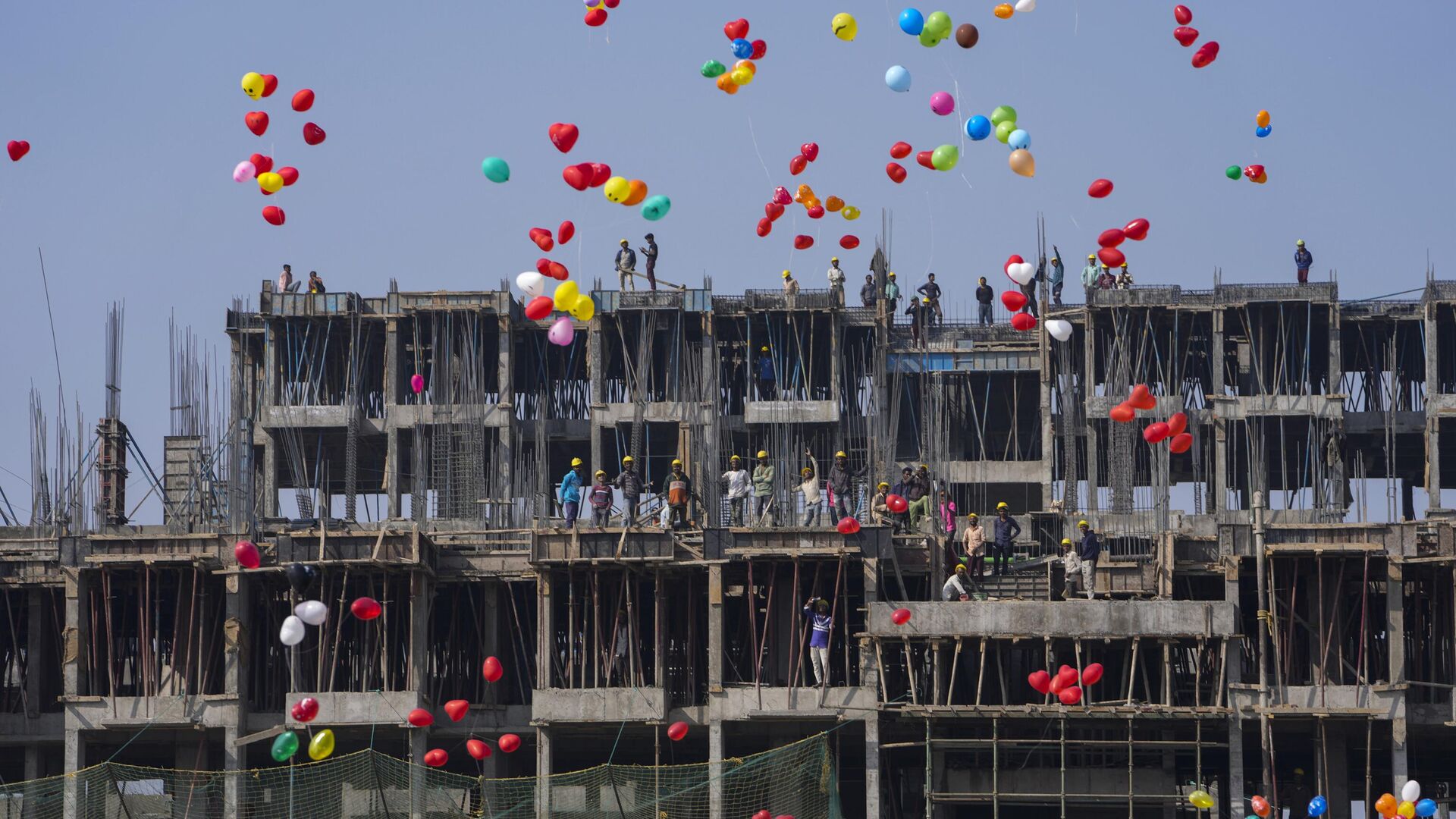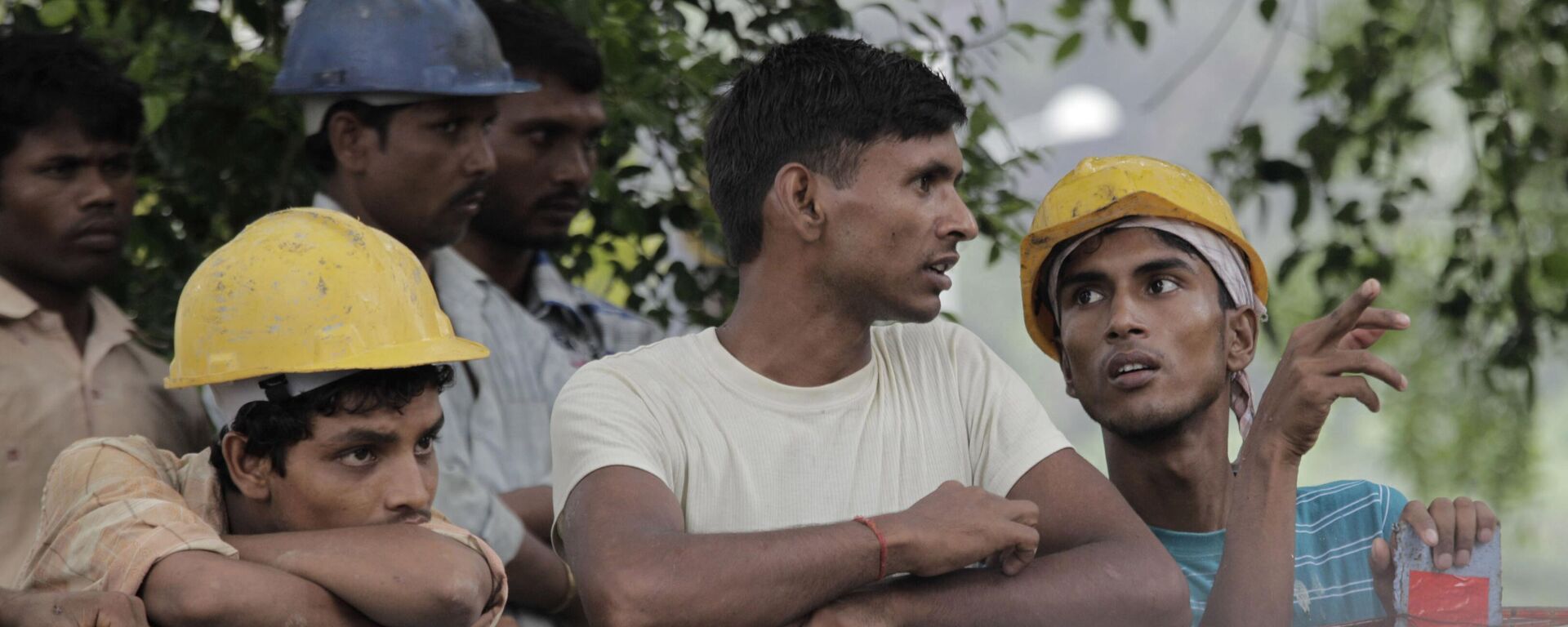https://sputniknews.in/20240304/racism-risks-jeopardising-india-taiwan-labour-cooperation-6732712.html
Racism Risks Jeopardising India-Taiwan Labour Cooperation
Racism Risks Jeopardising India-Taiwan Labour Cooperation
Sputnik India
Taiwan's decision to prioritise the recruitment of Indian workers from the nation's North-East due to their "similar skin colors and eating habits" has provoked a massive backlash.
2024-03-04T14:10+0530
2024-03-04T14:10+0530
2024-03-04T14:10+0530
taiwan
india
mizoram
racism
immigrants
indian diaspora
agriculture
china
southeast asia
south asia
https://cdn1.img.sputniknews.in/img/07e8/03/04/6733795_0:160:3072:1888_1920x0_80_0_0_73a4ddb2bbb8e7d1cdc9ce40009d4b64.jpg
Taiwan's Labour Minister Hsu Ming-Chun told domestic media last week that Taipei's Ministry of Foreign Affairs have decided that Indians from the North-Eastern states would be "introduced" in the manufacturing, construction and agriculture sectors to fill critical labour shortage gaps.The pact was signed by Baushuan Ger, the representative of the Taipei Economic and Cultural Center (TECC) in India, and Manharsinh Laxmanbhai Yadav, director general of the India-Taipei Association.In fact, Ger held discussions on labour mobility with Lalduhoma, the Chief Minister of north-eastern state of Mizoram, over weekend to advance Taipei's goals under the labour pact.A rapidly ageing society, Taiwan has for long relied on labour from Indonesia, the Philippines, Thailand and Vietnam to take up primarily blue-collar and domestic jobs.Taiwan's Image in India Dented Due to RacismIn line with New Delhi's commitment to One China Policy, it doesn't recognise Taiwan, though Indian authorities maintain a representative office in Taipei to bolster cultural and commercial links with the renegade Chinese province.Similar calls were witnessed on Indian social media, where users also described the discriminatory attitude of the Taiwanese authorities.Sana Hashmi, an Indian fellow at Taiwan-Asia Exchange Foundation (TAEF) in Taipei, the comments by the Taiwan's labour minister could "negatively impact the trajectory of India-Taiwan relations and tarnish perceptions of Taiwan among Indians".
https://sputniknews.in/20231115/taiwanese-proposal-to-bring-in-100000-indian-workers-provokes-racist-backlash-5411181.html
taiwan
india
mizoram
china
southeast asia
south asia
indonesia
the philippines
vietnam
thailand
Sputnik India
feedback.hindi@sputniknews.com
+74956456601
MIA „Rossiya Segodnya“
2024
Dhairya Maheshwari
https://cdn1.img.sputniknews.in/img/07e6/0c/13/138962_0:0:641:640_100x100_80_0_0_2cb44360dbcdf6d84bf4b299cd045917.jpg
Dhairya Maheshwari
https://cdn1.img.sputniknews.in/img/07e6/0c/13/138962_0:0:641:640_100x100_80_0_0_2cb44360dbcdf6d84bf4b299cd045917.jpg
News
en_IN
Sputnik India
feedback.hindi@sputniknews.com
+74956456601
MIA „Rossiya Segodnya“
Sputnik India
feedback.hindi@sputniknews.com
+74956456601
MIA „Rossiya Segodnya“
Dhairya Maheshwari
https://cdn1.img.sputniknews.in/img/07e6/0c/13/138962_0:0:641:640_100x100_80_0_0_2cb44360dbcdf6d84bf4b299cd045917.jpg
taiwan news, taiwan india news, taiwan indian workers, taiwan india labour agreement, taiwan india migration pact, taiwan india migration pact, racism in taiwan, racism against indians, indian diaspora, taiwan india ties, one china policy
taiwan news, taiwan india news, taiwan indian workers, taiwan india labour agreement, taiwan india migration pact, taiwan india migration pact, racism in taiwan, racism against indians, indian diaspora, taiwan india ties, one china policy
Racism Risks Jeopardising India-Taiwan Labour Cooperation
Taiwan's decision to prioritise the recruitment of Indian workers from the nation's North-East due to their "similar skin colors and eating habits" has provoked a massive backlash.
Taiwan's Labour Minister Hsu Ming-Chun told domestic media last week that Taipei's Ministry of Foreign Affairs have decided that Indians from the North-Eastern states would be "introduced" in the manufacturing, construction and agriculture sectors to fill critical labour shortage gaps.
Xu also pointed out in the interview that the people and "source area" for the Indian labour would be determined by Taiwanese authorities, in line with the migration and mobility pact inked with the India-Taipei Association on 16 February.
The pact was signed by Baushuan Ger, the representative of the Taipei Economic and Cultural Center (TECC) in India, and Manharsinh Laxmanbhai Yadav, director general of the India-Taipei Association.
In fact, Ger held discussions on labour mobility with Lalduhoma, the Chief Minister of north-eastern state of Mizoram, over weekend to advance Taipei's goals under the labour pact.
Taiwanese authorities said that the labour pact would "help mitigate the impact of Taiwan’s aging population and declining birth rate on the country’s workforce", according to a statement.
A rapidly ageing society, Taiwan has for long relied on labour from Indonesia, the Philippines, Thailand and Vietnam to take up
primarily blue-collar and domestic jobs.
Taiwan's Image in India Dented Due to Racism
Professor Bali R Deepak, Professor of Chinese and China Studies at Centre of Chinese and Southeast Asian Studies, Jawaharlal Nehru University (JNU), told Sputnik India that the racism row will "certainly dent Taiwan's image in India" and reflected its "narrow-mindedness". "It also casts a shadow on Taiwan being a progressive, open minded democratic entity, different from the stereotype Chinese, but the statement of the labour minister proves that the psyche of Taiwan’s elites is no different."
In line with
New Delhi's commitment to One China Policy, it doesn't recognise Taiwan, though Indian authorities maintain a representative office in Taipei to bolster cultural and commercial links with the renegade Chinese province.
"Being a multi-ethnic and diverse society, India must reject such a mindset, rather condemn it and stop any labour mobility cooperation with Taiwan that discriminates its citizens on the basis of caste, color or creed," the Indian professor opined.
Similar calls were witnessed on Indian social media, where users also described the discriminatory attitude of the Taiwanese authorities.
Sana Hashmi, an Indian fellow at Taiwan-Asia Exchange Foundation (TAEF) in Taipei, the comments by the Taiwan's labour minister could "negatively impact the trajectory of India-Taiwan relations and tarnish perceptions of Taiwan among Indians".
"They risk reversing the strides made in fostering people-to-people connections over the past few years," Hashmi warned.



